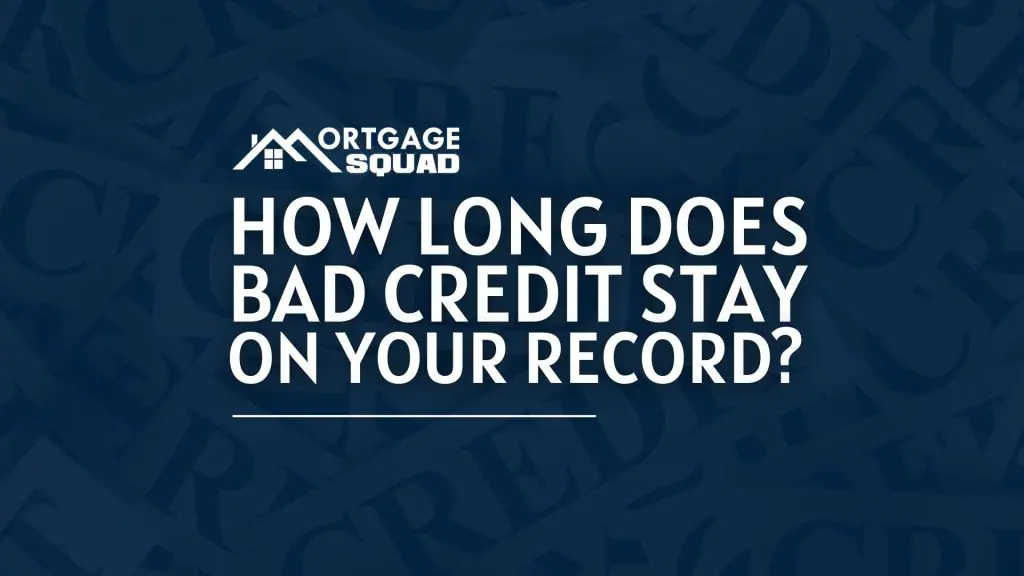Mistakes happen, especially with finances. A missed or late payment can stain your credit report, but how long does bad credit stay on your record?
If your credit score has taken a hit and you’re on a plan to clear your debts, how long before your score recovers enough for you to qualify for a mortgage or other loans?
In Canada, two main credit bureaus, Equifax and TransUnion, keep track of your credit history. Different lenders rely on one or both to assess your loan eligibility and terms. Here’s a guide on how long these bureaus keep bad credit details on your record.
Information That Affects Your Credit Record
Revolving Credit Transactions
Revolving credit includes credit card accounts and lines of credit. Equifax retains negative information for up to 6 years from the last payment date, while TransUnion keeps it for up to 6 years from the date it was first reported delinquent.
Debt Collection
When a debt is sent to a collection agency, it stays on your record for 6 years. Equifax starts this period from the date the debt is assigned to collections, while TransUnion starts from the date the account first became overdue.
Secured Loans
Secured loans, such as mortgages or car loans, are backed by assets. Equifax keeps negative information for 7 to 10 years from the date of filing. TransUnion retains this information for 7 to 10 years from the date of first delinquency.
Legal Judgments
Legal judgments from lawsuits stay on your record for up to 6 years from the filing date. This can vary by province. In Ontario, New Brunswick, Newfoundland and Labrador, and Quebec, TransUnion retains this information for 7 years. In P.E.I., it can be up to 10 years. Equifax retains this information for 7 to 10 years.
Bank Accounts
Negative information about bank accounts closed due to issues like fraud remains on your credit report for up to 6 years. Equifax starts this from the date of the transaction or default, while TransUnion starts from the most recent date of either the bank’s write-off or account closure.
Registered Items and Debts
Items like liens against property stay on your record for up to 10 years. TransUnion keeps these for 5 years from the filing date, while Equifax keeps them for 6 years, or 10 years in Prince Edward Island.
Consumer Proposals
A consumer proposal, where a borrower negotiates a reduced repayment amount, stays on record for 3 years after the debt is paid or 6 years after the proposal is signed, whichever comes first.
Bankruptcy
A first bankruptcy remains on your credit report for at least 6 years from the discharge date. TransUnion may keep it indefinitely but usually removes it after 7 years. Equifax removes it after 7 years. Multiple bankruptcies stay on your record for 14 years from the discharge date.
Credit Inquiries
Every time a lender checks your credit, it affects your score. These “hard” inquiries stay on your Equifax report for 3 years and on your TransUnion report for 6 years. Be strategic when applying for credit to avoid unnecessary hits to your score.
Positive Information
Positive credit information, like timely payments and low balances, can significantly improve your score. Both Equifax and TransUnion retain positive information for up to 10 years, helping you benefit from good credit habits.
A poor credit score can hinder your ability to secure a mortgage, rent a home, get a job, or even obtain a cell phone plan. At Mortgage Squad Advisors, we understand the impact of credit history and are here to help you navigate your options. By managing your credit wisely and addressing issues promptly, you can rebuild your credit and open doors to better financial opportunities.
Optimize Your Financial Future
Let Mortgage Squad Advisors assist you in understanding and improving your credit. Contact us today to learn more about how we can help you achieve your financial goals.

